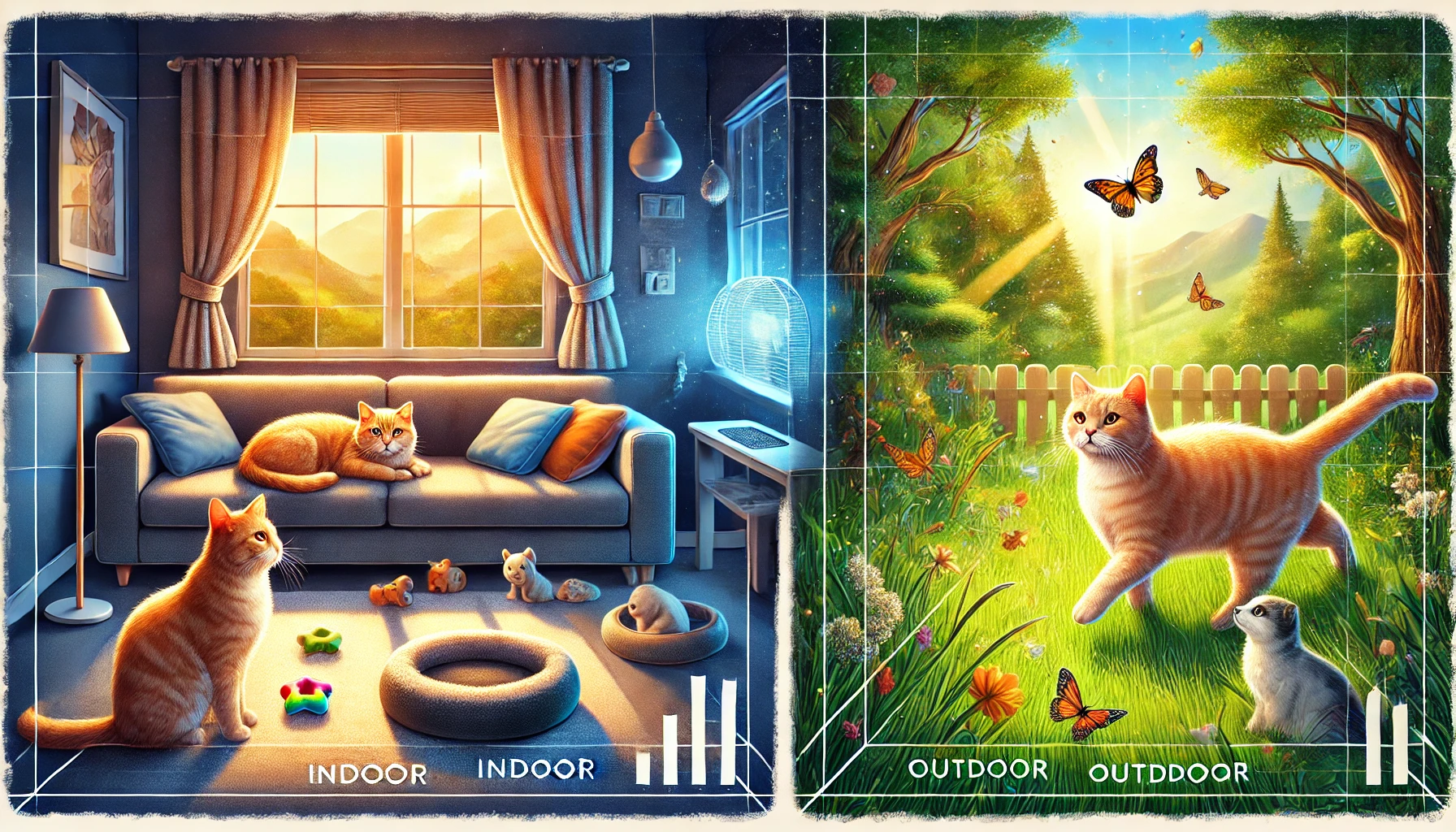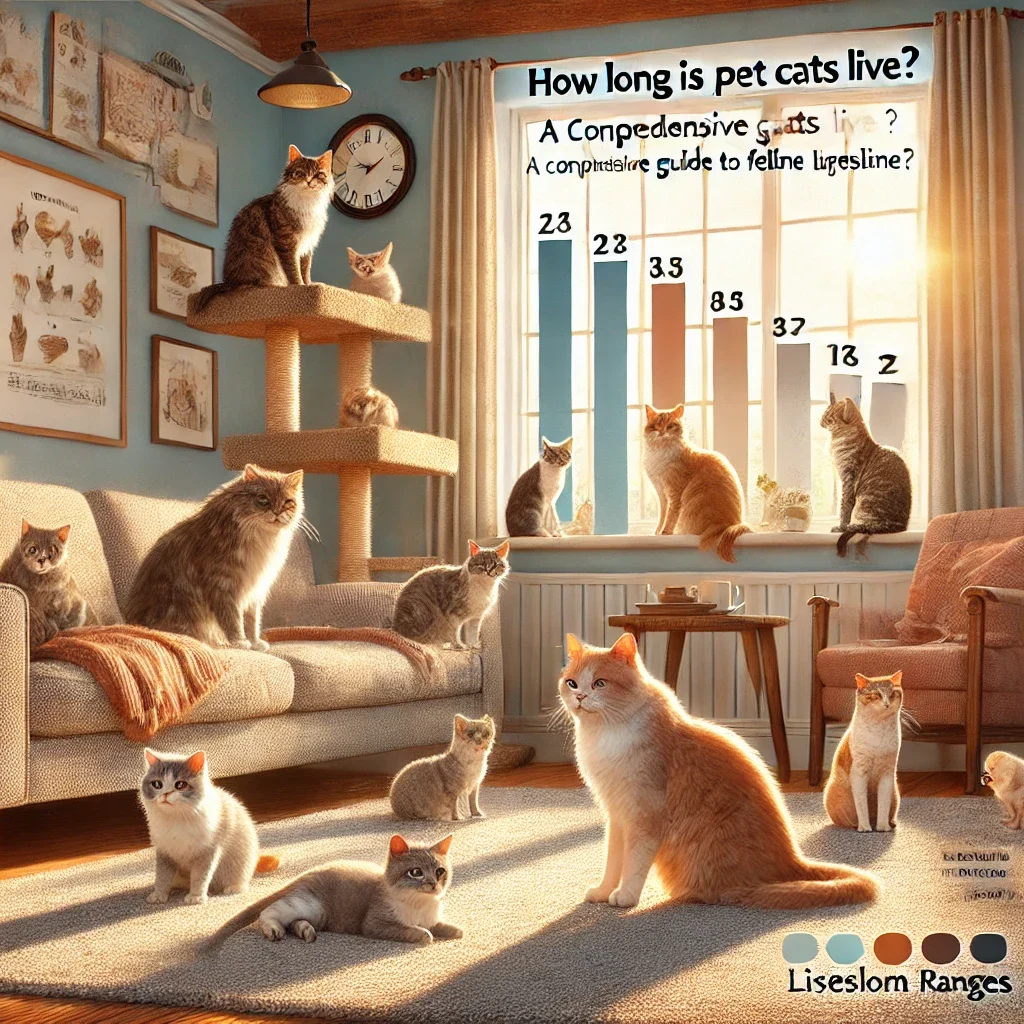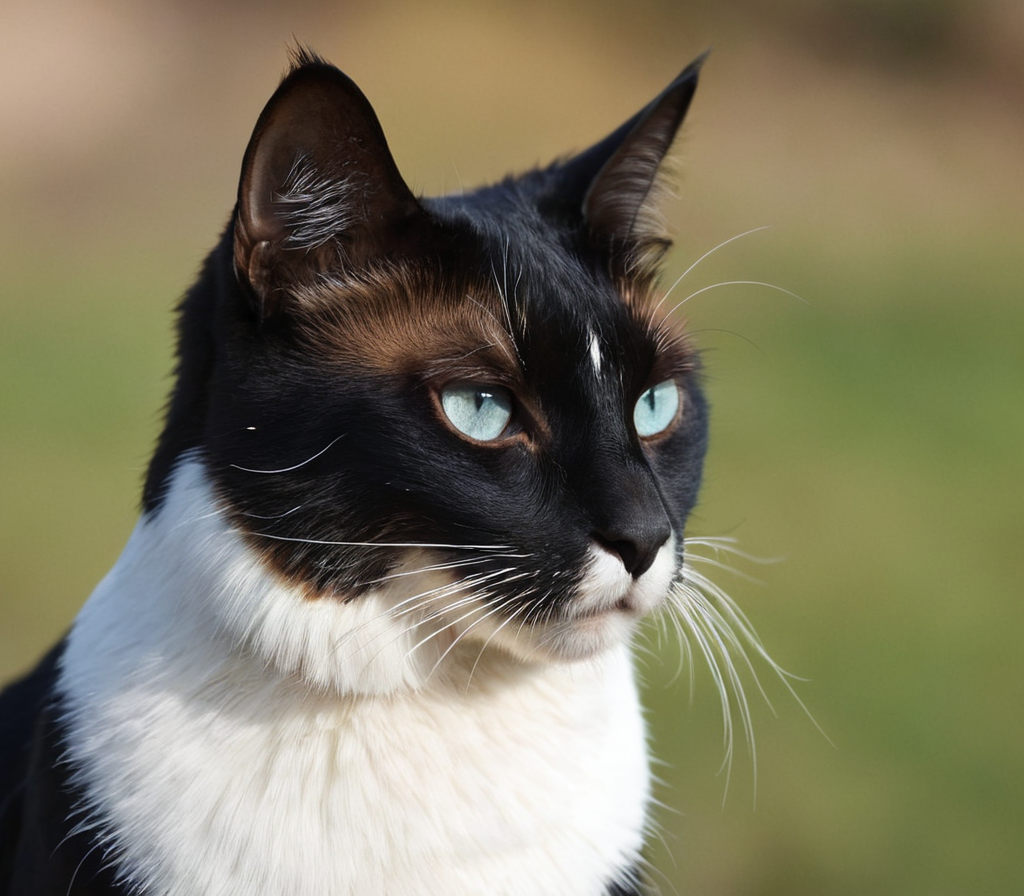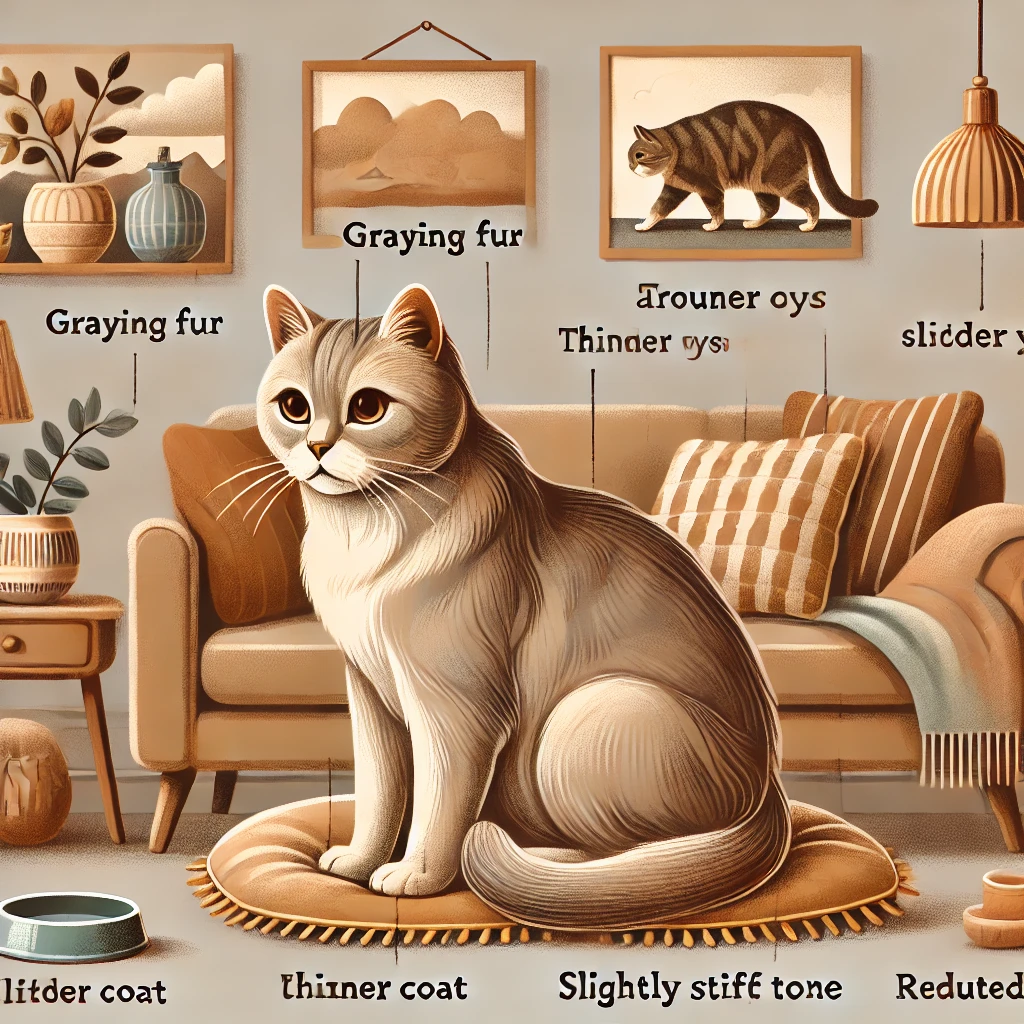Aging is a natural process, even for our beloved feline friends. As cats grow older, their bodies and behaviors change, often in subtle ways. Recognizing these signs early can help you provide the best care for your senior cat.
Table of Contents
How to Tell if Your Cat is Aging
Cats begin to show signs of aging around 7–10 years of age. While some changes are normal, others may indicate underlying health issues.
Behavioral Changes in Older Cats
- Decreased Activity Levels
Older cats often play less and may prefer resting over exploring. This could be due to joint discomfort or simply reduced energy. - Increased Vocalization
Senior cats may meow more, especially at night. This might result from confusion or sensory decline. - Changes in Sleep Patterns
Aging cats may sleep more during the day and become restless at night.

Physical Signs of Aging
Changes in Coat and Skin
As cats age, their coat may lose its luster and feel rougher. Some cats develop dry or flaky skin, which requires regular grooming.
Weight Fluctuations
- Weight Loss: This could indicate dental problems, kidney disease, or other medical conditions.
- Weight Gain: Reduced activity levels might lead to weight gain in senior cats.
Vision and Hearing Decline
Older cats might develop cloudy eyes or have trouble seeing in dim light. Hearing loss is also common and might explain why they don’t respond as quickly as before.
Dental Health Issues
Aging cats often experience dental problems like gum disease or tooth loss. Regular dental check-ups are essential for preventing discomfort.
Common Health Concerns in Aging Cats
Arthritis and Mobility Issues
Stiffness, limping, or hesitation to jump can signal arthritis. Providing ramps or low-sided litter boxes can help.

Kidney and Urinary Problems
Senior cats are prone to kidney disease, leading to increased thirst and urination. Monitoring litter box habits is crucial.
Hyperthyroidism
This condition is common in older cats, causing symptoms like weight loss despite an increased appetite.
Cognitive Dysfunction
Some cats may develop confusion or seem disoriented, a condition similar to dementia in humans.
How to Support Your Aging Cat
Provide a Comfortable Environment
Create a safe, quiet space for your cat to relax. Ensure easy access to food, water, and litter boxes.
Focus on Nutrition
Feed your cat a balanced diet tailored for senior cats. Look for foods rich in antioxidants and joint-supporting nutrients.
Schedule Regular Veterinary Check-Ups
Frequent vet visits can catch health issues early. Ensure vaccinations and parasite control remain up to date.

Encourage Gentle Exercise
Light play sessions can keep your cat active and maintain muscle tone. Use toys that stimulate their curiosity without requiring strenuous effort.
Groom Your Cat Regularly
Brush your cat’s coat to keep it clean and shiny. Regular grooming also strengthens your bond and helps you detect skin issues early.
Conclusion
Understanding the signs of aging in cats allows you to adapt their care to meet their changing needs. With love, patience, and proper attention, you can ensure your senior cat enjoys their golden years to the fullest.



